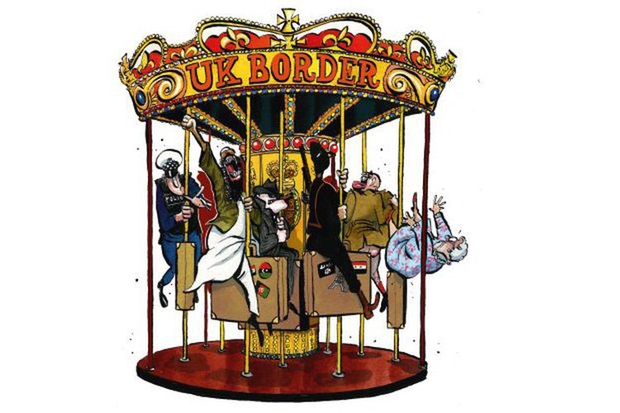Today’s net migration figures are still at their record level of just over a third of a million a year. This reinforces the need for the government to approach the forthcoming Brexit negotiations with a clear set of objectives. EU migration is now running at 190,000 a year and accounts for half of total non-British net migration. The referendum made all too clear that the British public want to see EU migration substantially reduced. Furthermore recent polling finds that more than half of Remain voters agree. Brexit is an opportunity that must not be missed. That is why we have published a clear set of UK objectives on immigration. We hope that the government will follow suit.
The guiding principle should be to preserve as many links with the EU as possible while sharply reducing net migration. So, the rights of EU citizens in the UK and British citizens in Europe should be preserved. Second, free movement for tourists, genuine students, genuine partners, business visitors and the self-sufficient should be maintained to reflect the very close ties that we share with our European friends and allies.
The crunch however will be the free movement of workers. This must come to an end as it is the reason for a large part of EU migration. Around four in five of the EU workers who have arrived in the UK in the last ten years have gone into lower-skilled work, and HMRC data shows that such lower skilled migrants pay only around half the income tax and National Insurance of the average UK taxpayer. This means that a system of work permits, confined to those offered a skilled job which pays an appropriate salary, will both cut net migration and make good fiscal sense. At the same time, companies should be free to post senior staff in and out of Britain. Consideration might also be given to a tapered and temporary ‘key workers scheme’ for areas of the economy which are heavily reliant on low-paid migration from the EU. This would give them time to adapt.
On benefits, fairness dictates that EU citizens should not be allowed access to income and housing benefits for five years, as is currently the case for non-EU citizens. The Common Travel Area between Northern Ireland and the Republic should be maintained as should juxtaposed controls at Calais and Dover, although these are not a matter for the EU. Of course, the interests of Scotland, Wales and Northern Ireland must be taken into due account.
A system based on work permits for those offered skilled work would yield a significant reduction in EU net migration of the order of 100,000 each year. Nobody can expect the government to reveal their strategy in advance but, if they were to publish such a very broad indication of their aims, this would help ease the concerns of industry. It would also provide assurance to the two-thirds of the public who rightly wish to see net migration reduced.
Lord Green of Deddington is chairman of Migration Watch UK and a former British diplomat






Comments